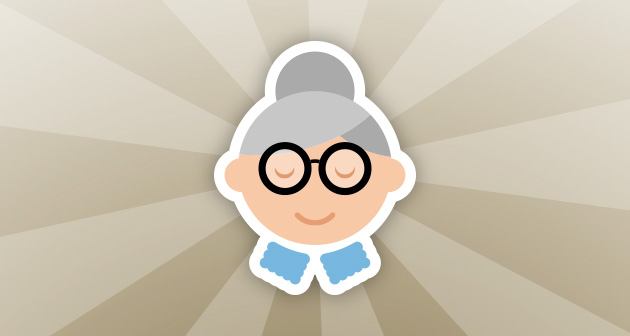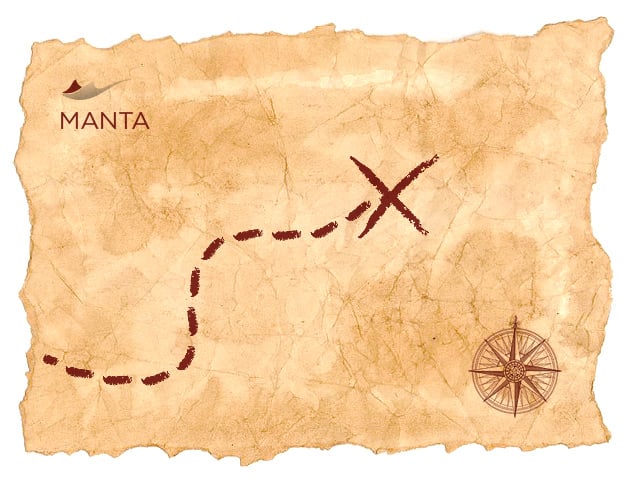
Our CEO Tomas Kratky explains to his grandma what we do: “Metadata management is simply cartography.”
A few weeks ago, I talked to my grandma. I travel a lot and she lives quite far away, so we hadn’t seen each other for a long time. She is an old lady, very kind and also very curious about what I do and how I live. She had many questions (half of them about kids which I don’t have yet) but everything went well till she asked about Manta Tools, the company I run. “Tomas”, she said, “tell me more about what you do for a living. You do computers, don’t you?”
I am used to talking about my vision, about what we do as a company and why, with so many people – our team, our clients, our partners, our investors. But none of them are like my grandma. The most advanced thing she can imagine is how to turn on her television. She doesn’t care about big data or any other similar buzzwords, so I was absolutely unable to say even a single word. When I left her room, I knew that I had failed badly.
I spent several weeks thinking about the best way to describe the world I live in, and this is the result. I haven’t used it yet; I wanted to share it with you, other professionals. I hope you’ll find it useful and helpful. And I would be glad to hear your feedback to further improve my story. In the end, I want to make my grandma proud of me.
You Need Information…
There are many huge companies like banks, telcos and utilities around us. Let’s imagine that one huge company is a country, like the United States, for example. Such a company provides a lot of services to its customers and runs a lot of processes. To do that efficiently, they need a lot of IT systems like online banking and accounting. And there are also many other systems which are owned by other companies but are somehow visible and even accessible to our example company, like weather forecasts and social networks. All those systems are valuable sources of information – about clients, about partners, about the environment, about our own performance, etc. Information is our gold today and it always has been. You are stronger when empowered with the right information delivered at the right time. So if information is gold, those systems I’ve just mentioned are gold mines.
…To Make Decisions
The main purpose of information is to use it to make decisions. After all, we live in a data-driven world. Let’s pretend that decision makers are dukes, lords and kings living in that country. They own the gold, for sure, but to use it, we must dig it up and transport it to them. And you know what? This is exactly what business intelligence is about, isn’t it? The mines are data analytics in the real world; the trucks and roads are ETLs (or data processing).
So, we have a great country with gold everywhere and lords eager to get it. And we have a way to find, dig up and deliver the gold to them. But, just as in the real world, our country is large with deep valleys, fierce rivers, steep mountains, dark woods, hot deserts, and insidious swamps. Delivering the gold from the mines to the lords is sometimes a very dangerous job, as you can imagine. We can mistake rocks for gold, or we can damage it (this is why everybody runs data quality programs). But it is also dangerous for us – we can easily get lost if we choose to follow the wrong road. And so, we need maps.

They allow us to share with others the knowledge of one brave Indiana Jones, the very first discoverer of that road, about the right direction and all associated dangers. Those maps are metadata, ladies and gentlemen, and metadata management as a discipline is simply cartography.
Lords always want more gold. They are born with this obsession. So they continuously invest into better and larger mines, wider and safer roads, and faster and bigger wagons to deliver as much gold as possible in the safest way possible. We have great highways now (yes, I mean those wonderful graphical ETL tools like Informatica PowerCenter, IBM DataStage, and Talend) which are very easy to discover and map for any cartographer, regardless of their level of experience.
But with all those rivers, mountains, swamps, and deserts it is simply not smart or even possible to build highways everywhere. Sometimes we just need a way to quickly walk through a dark forest, and building an expensive highway is not a good choice if we don’t understand what’s on the other side (yes, I am talking about data science!). Sometimes we need to build a bridge across a river or a road through a dangerous swamp. So you need special construction to do that (now I am talking about programming code, like SQL for example, which allows us to overcome almost any engineering difficulty). Unfortunately, mapping complex bridges, desert roads, and special roads through swamps is a very tricky job for any cartographer.
The Exponential Growth
What is even worse, in the last few years the number of mines, roads, and wagons of all kinds has grown exponentially. We build them everywhere and usually there is not enough time to do it according to a bigger plan. It is a huge mess today. Detailed, accurate maps are needed more than ever before. We can get really lost without them. All our gold can be lost forever, in just a second.
Fortunately, there are several great and popular companies doing cartography – Informatica, IBM, Adaptive, Collibra, and Alation, to name a few. But they focus more on how their maps look, how easily they can be used, and how understandable they are for drivers. Unfortunately, they don’t map more dangerous roads (programming code in the form of various SQL scripts or stored procedures) correctly. So the maps they produce are rather incomplete with a lot of “here be dragons” areas, blank spots. And this is exactly where Manta Tools comes in.
We are the Indiana Joneses, the adventurers of modern cartography. We discover dangerous roads where others are afraid to go. We map them and help the bigger cartographers produce as complete and precise maps as possible.
With Manta Tools, there are no “here be dragons” areas anymore.
And all the precious and shiny gold of our lords is much safer with us!